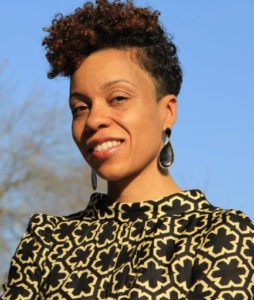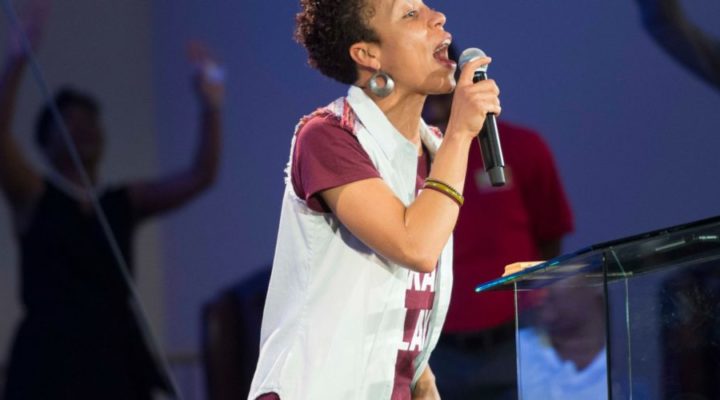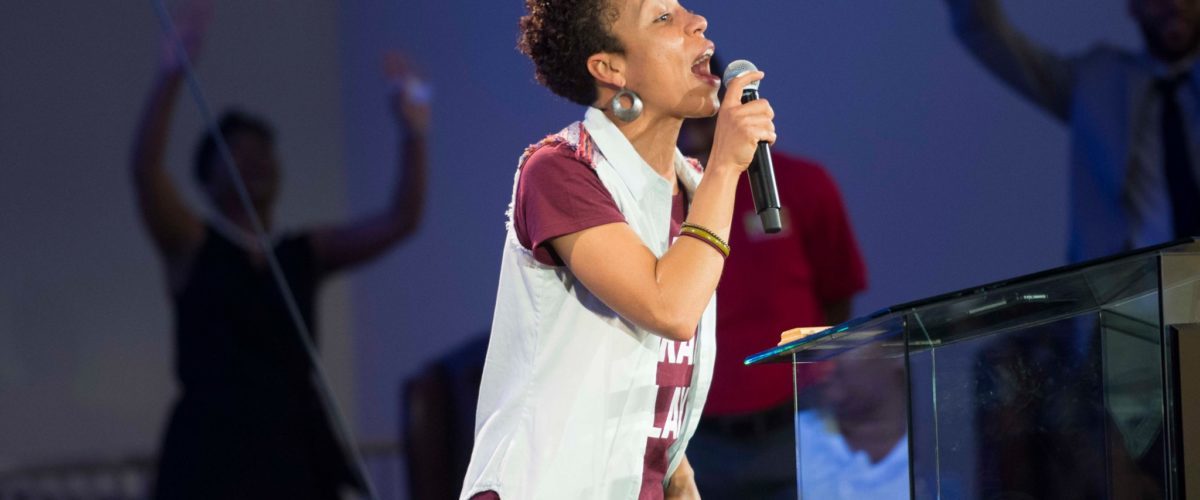Black History Month has its critics, but Chalice Overy isn’t one of them.
Overy, associate pastor at Pullen Memorial Baptist Church in Raleigh, N.C., said the focus on Black heroes and accomplishments every February growing up prepared her for being Black in a white-dominated culture.
“It provided an opportunity to reflect on Black achievement throughout history and to realize Black people have made significant contributions in American life,” Overy said. “It told me that despite the narrative I have been fed to the contrary, we have had an impact and therefore I am somebody who is capable of doing great things.”

Chalice Overy
Overy recently shared her perspective in an article, “Is it time to ‘cancel’ Black History Month?” published by the Alliance of Baptists. In it, she wrote about the emotional impact the annual observance of Black history had on her.
“I feel a bit of sadness now as I consider how desperate my community was to instill in us the value that we were just as good and just as capable as anyone else,” she wrote.
Overy spoke with Baptist News Global about her essay and about how Black History Month has contributed to her ministry today.
What prompted you to write the article?
It was by invitation of the Alliance with consideration of the ways in which Black History Month has come to be seen as problematic. I also wanted to take a moment to appreciate the value of Black History Month and the important role it has had in our community for a long time.
Would you expand on the idea of Black History Month being problematic?
It’s because it can normalize the exclusion of Black history and culture from the rest of the year. Black history is American history, and yet it is excluded from having a full treatment in our textbooks and in our public-school curriculums to the point where individuals and organizations within the Black community have to structure that education for themselves. The problematic part of it is that we should not have to have a special month set aside for Black history if Black history was sufficiently included within our nation’s normal treatment of history.
“We should not have to have a special month set aside for Black history if Black history was sufficiently included within our nation’s normal treatment of history.”
Also problematic is that Black History Month becomes a way for predominantly white institutions to claim solidarity in a very easy way — solidarity without a firm commitment. There are many ways in which our history becomes commodified and commercialized, and companies can use it to pander to a Black market but without adjusting their hiring policies to be inclusive.
What is it that you appreciate about Black History Month?
I love the ways in which it fortifies Black children and helps them find a place in this country. It provides a way in which they can acknowledge their contribution to society.
The context for that is the nature of racism. Racism is the water that we swim in in this country, and so there are ways that you just internalize that. There are ways in which politicians and the media tell you that Black people are all on welfare and that Black people populate our prisons because they are all criminals.
You begin to internalize the message that you have some sort of deficiency and that maybe there is something about you that’s inherently lazy or criminal. Black History Month comes along and says you only think that because you don’t know about the achievements of Black people throughout history. Black History Month is a way of acknowledging the fact that you are ignorant of these accomplishments because they have been intentionally withheld from you so that you doubt yourself.
You said in your column that the need for Black History Month evokes sadness in you. Why?
It’s sad because my teachers at school and at church knew they had to expose us as children to this history to counter the false notions of racial inferiority they knew we eventually would encounter. They didn’t know when we were going to get those messages and begin internalizing them, so they had to work hard to fortify us against that.
As a child, I wasn’t thinking that I was different because I am Black, or that I was less capable. But Black History Month signaled to me that those attitudes are out there. My fifth-grade teacher would tell us: You will have to work twice as hard as your white counterparts to receive the recognition and the opportunities they receive much more easily. Black History Month was a context in which I could learn those things, and it was a way to push back against that false narrative of inferiority.
Is Black History Month an effective way to counter white supremacy?
Yes. White supremacy is countered just by saying that white people are not the only people who have made valuable contributions to this society — which is not the conclusion many people would come to after sitting in most history classes. Or you would think Black achievement is extremely rare and exceptionable, like a Black astronaut or Neil deGrasse Tyson or Barack Obama.
“You would think Black achievement is extremely rare and exceptionable, like a Black astronaut or Neil deGrasse Tyson or Barack Obama.”
White supremacy wants white people and Black people to see Black achievement as largely an anomaly. Black History Month shows that is not the case, and that’s how it challenges white supremacy.
It also challenges people to consider why a huge gap in educational attainment and in wealth exist between white and Black people in our country. When you consider that Black people have contributed so much to our country, why do these disparities exist? It’s not because white people are the smartest or hardest-working people, but because systems have been structured for their success to the exclusion of others.
Do you continue to celebrate Black History Month?
One way I do so is in the predominantly white church where I serve right now. We are continuing to learn about Jim Crow laws and how they shape racism in North Carolina. We are working toward an understanding of racism as something that is systemic and that happens not just through bad words and negative feelings, but through policy. It fits into our goal of becoming an anti-racism church. And I am using Black History Month to instill in the young people in my life the same pride my teachers instilled in me.
Is there a Black woman in history who especially inspires you?
Jarena Lee. She was the first female to be allowed to preach in the African Methodist Episcopal Church, in which I was ordained. She had asked (AME Church founder and Bishop) Richard Allen for a license to preach but he wouldn’t do it. Later, on one Sunday morning, the preacher couldn’t preach himself out of a paper bag so Jarena Lee just stood up started preaching. Her calling and her gifts were obvious. After that, Bishop Allen acknowledged those gifts and authorized her to use them in the church. She is a powerful inspiration to me.


